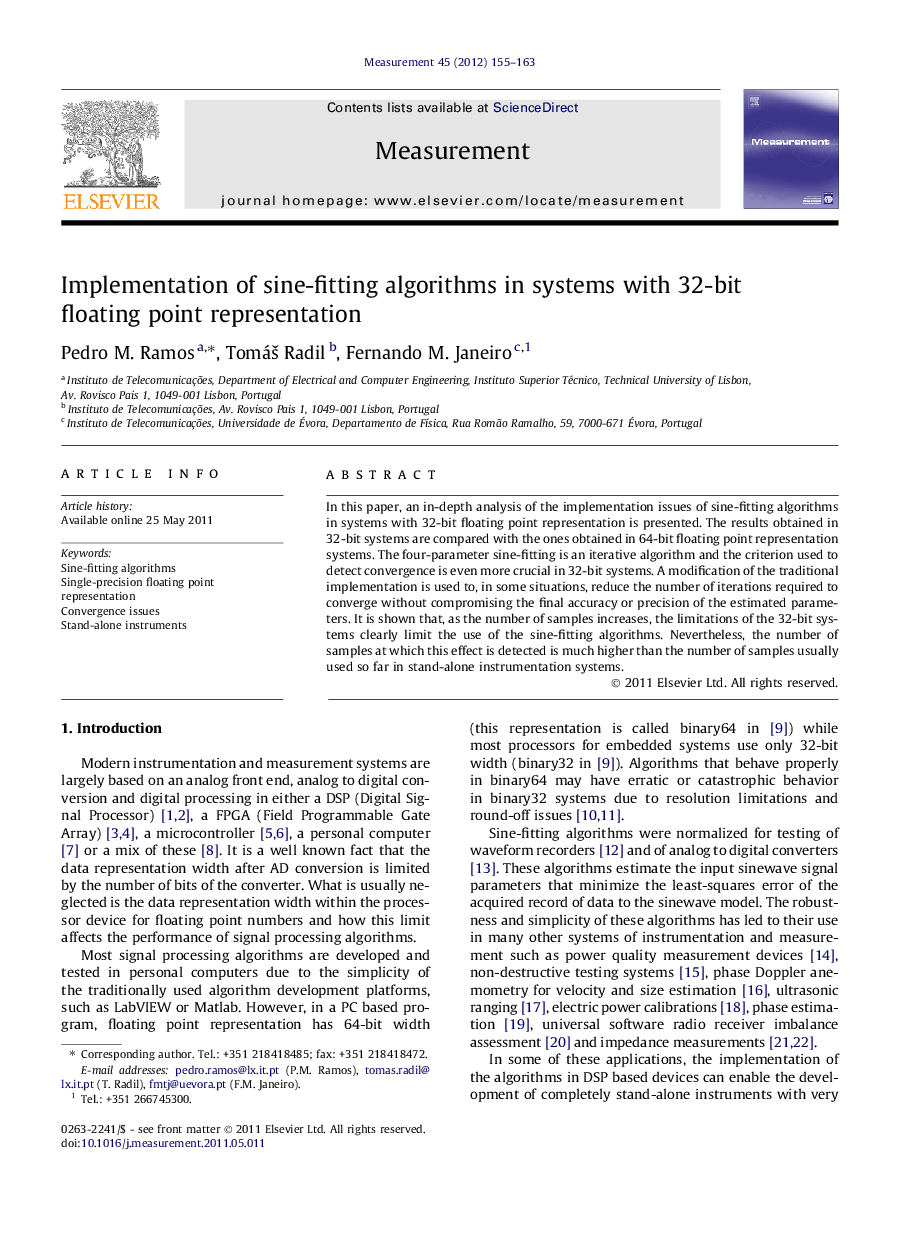| Article ID | Journal | Published Year | Pages | File Type |
|---|---|---|---|---|
| 730545 | Measurement | 2012 | 9 Pages |
In this paper, an in-depth analysis of the implementation issues of sine-fitting algorithms in systems with 32-bit floating point representation is presented. The results obtained in 32-bit systems are compared with the ones obtained in 64-bit floating point representation systems. The four-parameter sine-fitting is an iterative algorithm and the criterion used to detect convergence is even more crucial in 32-bit systems. A modification of the traditional implementation is used to, in some situations, reduce the number of iterations required to converge without compromising the final accuracy or precision of the estimated parameters. It is shown that, as the number of samples increases, the limitations of the 32-bit systems clearly limit the use of the sine-fitting algorithms. Nevertheless, the number of samples at which this effect is detected is much higher than the number of samples usually used so far in stand-alone instrumentation systems.
► Analysis of sine-fitting algorithms in 32-bit floating point representation systems. ► Comparison with results from 64-bit floating point representation systems. ► Improved criteria to stop the iterations of sine-fitting algorithms. ► Enhanced memory and QR decomposition implementations are compared. ► In binary32, longer records originate estimations with higher variances.
